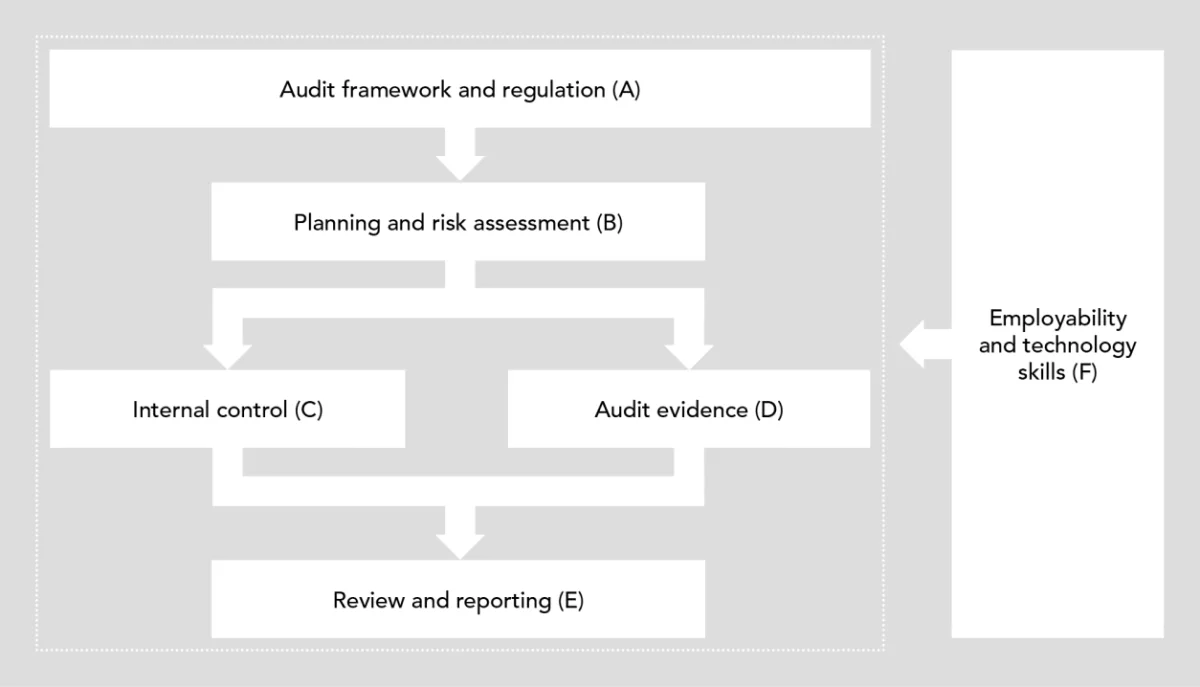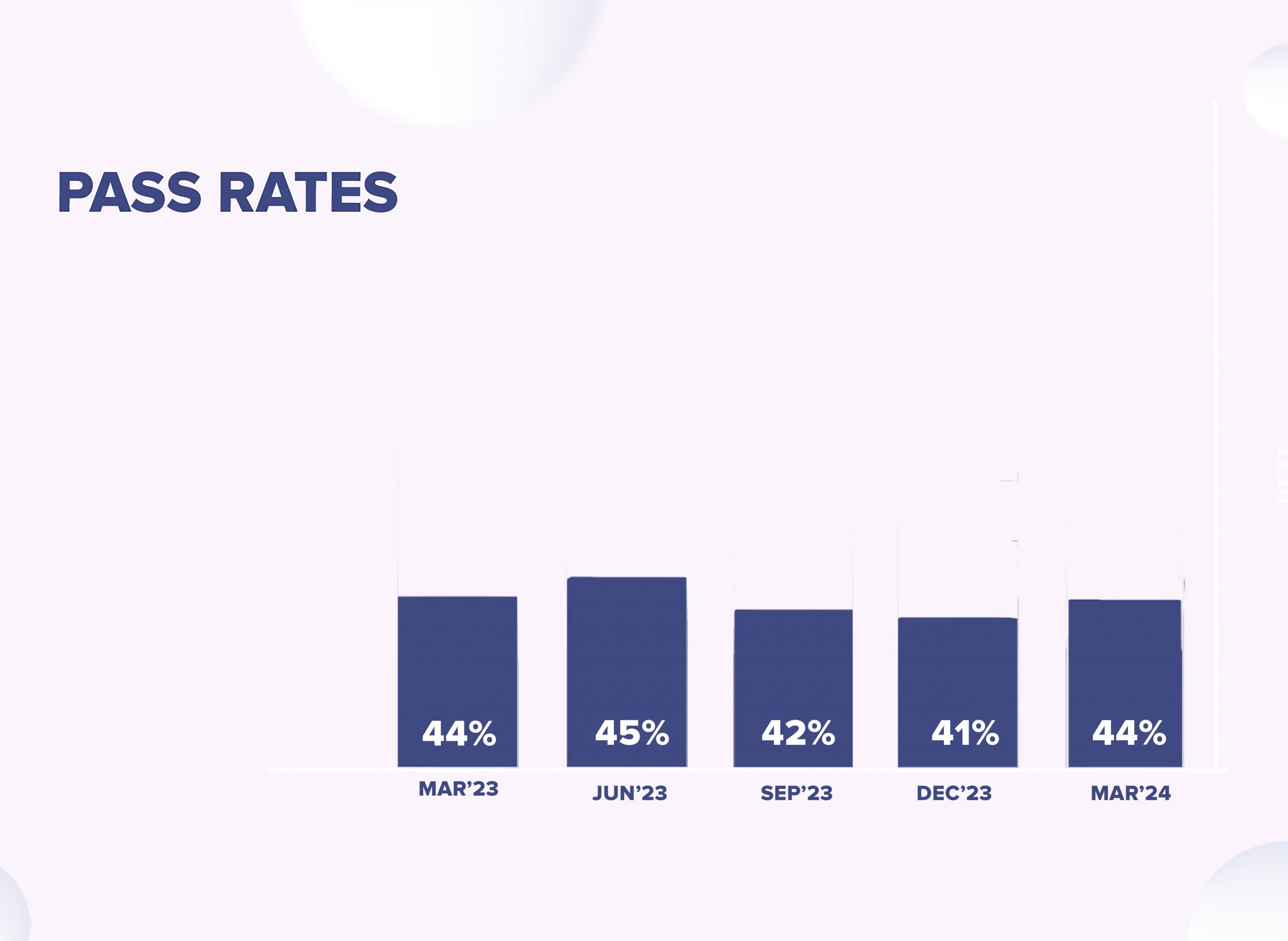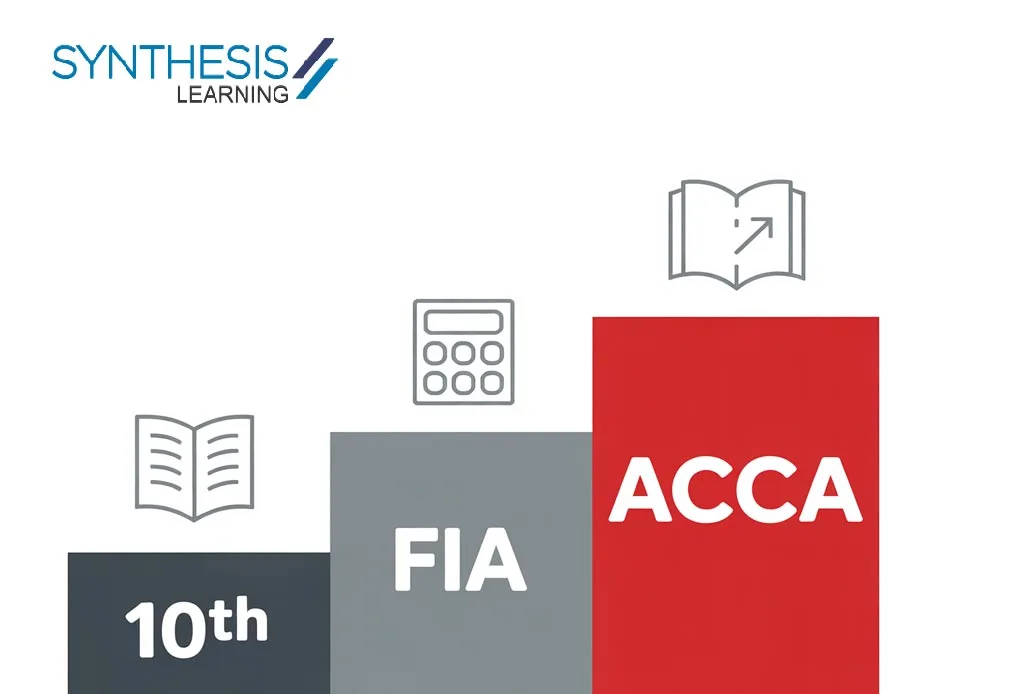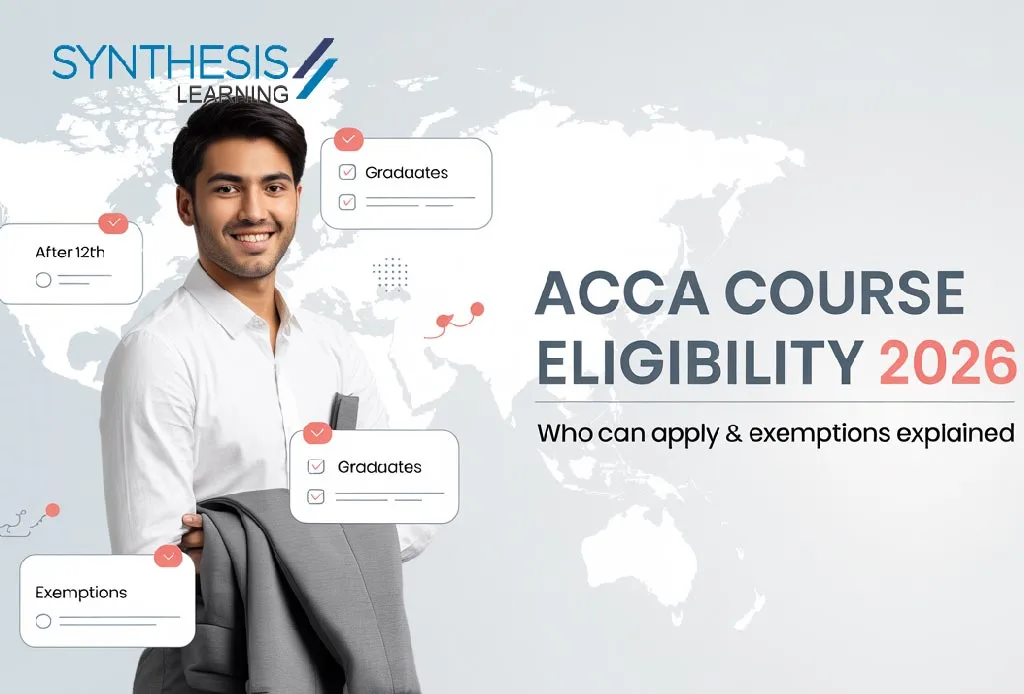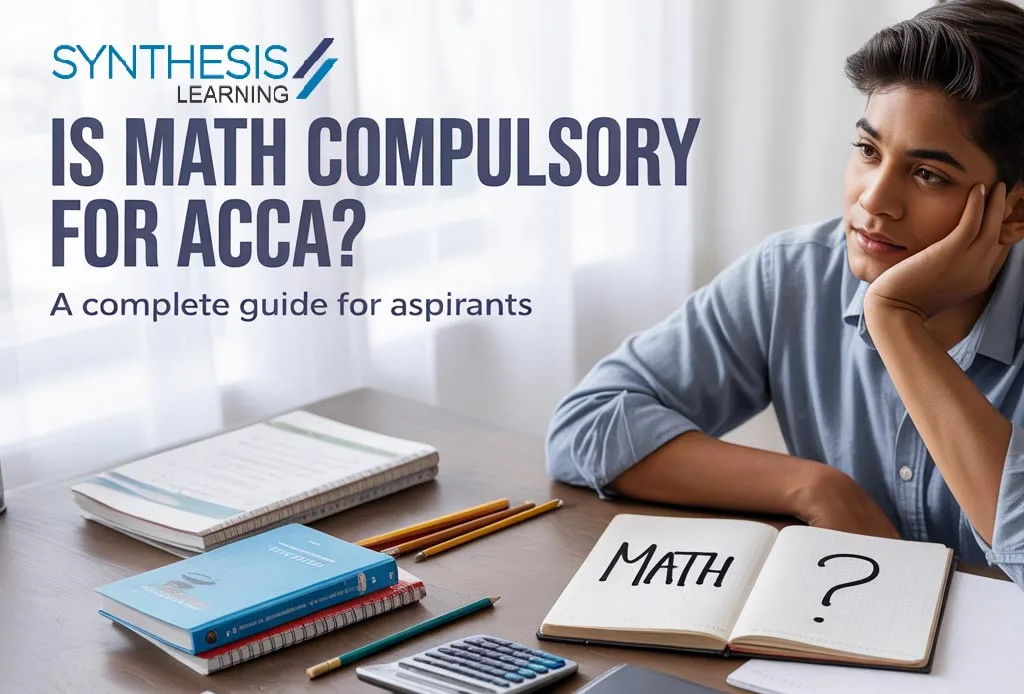Complete ACCA AA Study Guide – Syllabus, Paper Pattern, Academic Plan, Mock Exams, Tips, And More
The ACCA Audit & Assurance (AA) exam is designed to build your understanding of the assurance engagement process within a professional regulatory framework. We are here with a comprehensive study guide covering the ACCA AA syllabus, paper pattern, academic planning, mock exams, and essential tips. Whether you’re aiming for deep information on practical exam strategies or detailed information on ACCA AA study patterns, this guide by Synthesis Learning offers detailed insights to help you succeed in the ACCA AA exam, held every quarter.
DECODING THE SUBJECT
The ACCA Audit & Assurance (ACCA AA) syllabus helps you develop knowledge and understanding of the assurance engagement process and its application in the professional regulatory framework.
As an exam at the skills level, ACCA AA can be attempted during any four exam sessions throughout the year: March, June, September, or December.
Table Of Contents
ACCA AA SYLLABUS
ACCA AA PAPER PATTERN
ACCA AA PASSING TRENDS
SOURCES OF CONTENT
STUDYING METHODOLOGY
HOW TO PLAN ACCA AA MOCK EXAMS
THINGS TO REMEMBER WHILE WRITING THE EXAM
EXAMINER’S EXPECTATIONS
ACCA AA SYLLABUS
The directors’ primary responsibility is to prepare the entity’s financial statements.
An auditor is expected to evaluate the truthfulness and provide an opinion on these financial statements in an Independent Auditor’s Report using professional skepticism.
In other words, for the users (mainly shareholders) to rely on the financial statements, the auditor gives an opinion on whether the entity’s financial statements prepared by the directors are true and fair in all material respects.
The ACCA AA syllabus is designed to cover the basic knowledge required by an auditor in auditing the entity’s financials using the International Standard on Auditing (ISA) and the International Standard on Quality Control (ISQC). Here is the detailed ACCA AA syllabus-
 A. Audit framework and regulation
A. Audit framework and regulation
- The concept of audit and other assurance engagements
- External audits
- Corporate governance
- Professional ethics and ACCA’s Code of Ethics and Conduct
 B. Planning and risk assessment
B. Planning and risk assessment
- Obtaining, accepting and continuing audit engagements
- Objective and general principles
- Assessing audit risks
- Understanding the entity and its environment and the applicable financial reporting framework
- Fraud, laws and regulations
- Audit planning and documentation
 C. Internal control
C. Internal control
- Systems of internal control
- The use and evaluation of systems of internal control by auditors
- Tests of controls
- Communication on internal control
- Internal audit and governance and the differences between external audit and internal audit
- The scope of the internal audit function, outsourcing and internal audit assignments
 D. Audit evidence
D. Audit evidence
- Assertions and audit evidence
- Audit procedures
- Audit sampling and other means of testing
- The audit of specific items
- Automated tools and techniques
- The work of others
- Not-for-profit organisations
 E. Review and reporting
E. Review and reporting
- Subsequent events
- Going concern
- Written representations
- Audit finalisation and the final review
- The Independent Auditor’s Report
 F. ISAs & FR revision
F. ISAs & FR revision
- Use computer technology to efficiently access and manipulate relevant information
- Work on relevant response options, using available functions and technology, as would be required in the workplace
- Navigate windows and computer screens to create and amend responses to exam requirements, using the appropriate tools
- Present data and information effective
Hack:
- Part A: Audit Framework and Regulation to understand the basics of the subject.
- Part B: Planning and Risk Assessment. Make sure you spend enough time on Part B and solve all questions, as it will likely be tested.
- Part C: Internal control
- Part D: Audit evidence. This section covers many important topics in detail and will consume a good amount of time.
- Part E: Review and reporting act as a conclusion and should be covered after Part C. It is interesting, meaningful, and less time-consuming. After you have completed all the topics and solved all case studies, you can spend some time reading.
- Part F: ISAs & FR revision.
Important note: It is advisable to take an audit and assurance (AA) exam after you have attempted the financial reporting (FR) examination. Knowledge of your FR paper will help clear your AA examination.
ACCA AA Exam Structure
The ACCA Audit and Assurance – ACCA AA exam structure is meticulously designed to comprehensively cover the syllabus, ensuring you are tested in all critical areas. The ACCA AA exam format consists of a 100-mark examination divided into two main sections.
Section A of the AA ACCA exam structure consists of three case studies, each containing five objective test questions (OTQs) worth 2 marks each, totalling 30. Section B of the ACCA AA Exam format includes three constructed response questions: one 30-mark question and two 20-mark questions, totalling 70 marks.
This AA ACCA exam structure primarily focuses on theoretical knowledge, with minimal numerical questions, ensuring a robust understanding of auditing principles and practices.
ACCA AA PAPER PATTERN
The 100-mark ACCA AA exam paper has been designed to ensure that all the different areas of the syllabus are covered adequately. Following are the various sections and question types that you can expect-
| ACCA Audit and Assurance (100 Marks) | ||
|---|---|---|
| Section A (30 marks) | Section B (70 marks) | |
| 3 case studies * 5 OTQ’s in each case study * 2 marks each | 3 Constructed response questions 1 question * 30 marks 2 question * 20 marks | |
Please note the paper pattern is different from all the other Applied Skills examinations.
This is a theory paper, so few calculative or numerical questions are expected.
ACCA AA PASSING TRENDS
You are expected to score 50/100 to pass this examination. This is easily manageable with a clear understanding of the concepts, good practice of the questions, and a positive attitude. The pass rates of ACCA AA paper across the globe are roughly 40%-45% for most attempts.
SOURCES OF CONTENT
You need to refer to these two content sources for your preparations primarily –
- The Study Text – for conceptual understanding
- The Practice/Exam Kit – for practice questions
You should consider only two ACCA-approved content providers: Kaplan Publishing and BPP Learning Media. Apart from this, you can also refer to the technical articles published by ACCA on different topics. You can use this link to refer to the articles.
Download our curated express notes for ACCA AA here
STUDYING METHODOLOGY
- Commence preparations with the Study Text and go through all the concepts in absolute detail. Understand the requirements of ISAs. Attempt all questions from the Practice Kit to gain more clarity and a deeper understanding of how to approach this part of the paper.
- The right language is very important in this paper. Learning to be crisp and yet ensuring you do not miss out on details is an art you must master with time. Choosing the right vocabulary from the ‘Audit Syllabus’ will go a long way in helping you build your score. The best way to practice this art is to read the answers from the Practice Kit enough times until you have internalized this paper’s communication style.
- This is a complete theory paper, so you must practice typing your answers perfectly. After logging in to the Practise Platform, you may use the constructed response ‘blank workspace’ provided by the ACCA to access the CBE environment.
- This paper will also include a few direct questions testing your understanding of concepts. Although there is no exhaustive list of the straight questions that can be tested, it is advisable to learn all-important direct questions to boost your marks.
- When solving the constructed response questions from the practice kit, it is useful to go through the key answer tips, tutor’s top tips, tutorial notes, and examiner’s comments to understand the common mistakes students make and how you can deliver a better answer.
HOW TO PLAN ACCA AA MOCK EXAMS
Attempting enough mock exams is a must to ace your ACCA course! Going without solving mocks is like a soldier without a weapon.
The examination is now conducted using the CBE platform; it is truly important to write at least 2-3 mocks to get a good idea of how the final examination would be and to get used to the CBE environment.
You can log in to the ACCA ‘Practice Platform’ to solve mocks using the following link.
Hack: One day before the examination, invest all your time in revising what you have studied so far. Do not try to study any new concept or solve any new case study. Skim through the study text and practice kit. Focus on memorizing the important concepts key learnings from the various case studies you have practiced & revising the key terms & terminologies that you shall use in your answers.
THINGS TO REMEMBER WHILE WRITING THE EXAM
While you have learned your syllabus well, it is very important to take note of a few important tips & tricks that will help you deal with your exam efficiently-
- Time Management: It is important to complete the paper on time. Traditionally, students have failed to manage this paper in the given time period. Remember, Time Management is the key to success!
Time Management during the exam:
| PAPER | AA | TOTAL |
|---|---|---|
| Section A | 15 case study OTQ’s * 2.67 mins | 40 minutes |
| Section B | 2 questions (20 mark) * 40 mins each | 80 minutes |
| 1 question (30 mark) * 55 mins each | 55 minutes | |
| Final Check | 5 minutes | |
| TOTAL | 180 minutes |
- Do not stress or panic during the exam; stay calm and write all you know. If you freak out, you may mess with other straightforward, manageable, and scoring questions.
- Do not leave any questions unattempted.
- For your OTQs, there is always a 25% probability of getting the answer right. Place your bet and mark the option you believe is the closest to the answer.
- For constructed response questions, there is no negative marking. So, based on your understanding of the concepts, make sure you form an answer to every question asked.
- Be prepared to find a different and new style of questions. With patience and by linking to the concepts of your syllabus, you should be able to tackle them well.
- Better to start with Section A first, then Section B, and lastly Section C, i.e., FOLLOW THE ORDER!!! Only spend a little time finding answers to questions you cannot crack. Section C: make sure you show the workings and the solution for the numerical questions wherever needed. For theoretical questions, write enough to earn marks. One healthy and valid point is worth 1 mark.
EXAMINER’S EXPECTATIONS
The ACCA publishes an Examiner’s Report for every attempt, which gives insight into the marking process, the common mistakes that students make during the exams, and other valuable techniques for doing well in your examination. You must review the Examiner’s Reports to understand what the examiner expects from you. It will help you know how students have failed to tackle different questions and how they could have performed better. It’s like learning from someone else’s mistakes. You can follow this link to refer to a few of the examiner’s reports published by the ACCA.
Synthesis Learning: Your Partner To Ace ACCA FA Exams
ACCA’s Highest Quality Rating: Platinum Approved Partner for top-notch education.
Rigorous, Stellar Education: Platinum Status reflects our rigorous standards and exceptional training through expert tutors.
Learn Your Way, Anywhere: Flexible learning modes (Classroom, Live Online, Self-paced) fit your schedule and style.
Click on the Link
Join the High Achievers: Surround yourself with ambitious students & global rankers.
Click on the Link
Success Stories: Get inspired by real ACCA & career launch stories. Plan your path to the top.
Watch on YouTube
Tried, Tested & Trusted by the Best – Our 4-Step proven methodology – Counselling, Coaching, Mentoring & Placement, always does the trick.
Conclusion
With comprehensive training, flexible learning options, and a proven success methodology, Synthesis Learning is your ultimate partner in preparing for and succeeding in the ACCA AA exams. Join us to achieve your ACCA goals and launch your career to new heights.
All the best 😊
Our expert tutors for ACCA Audit and Assurance (ACCA AA) have successfully coached thousands of ACCA aspirants with a phenomenal passing rate. Over 92% of our students who completed our full eLearning program passed their exams (92% was an average of all our qualification courses over the last 2 years at the time of writing). Join their club with our Platinum-Rated ACCA Online Courses today! Book a demo.
Summary of all links
Technical articles published by ACCA
Blank workspace provided by the ACCA

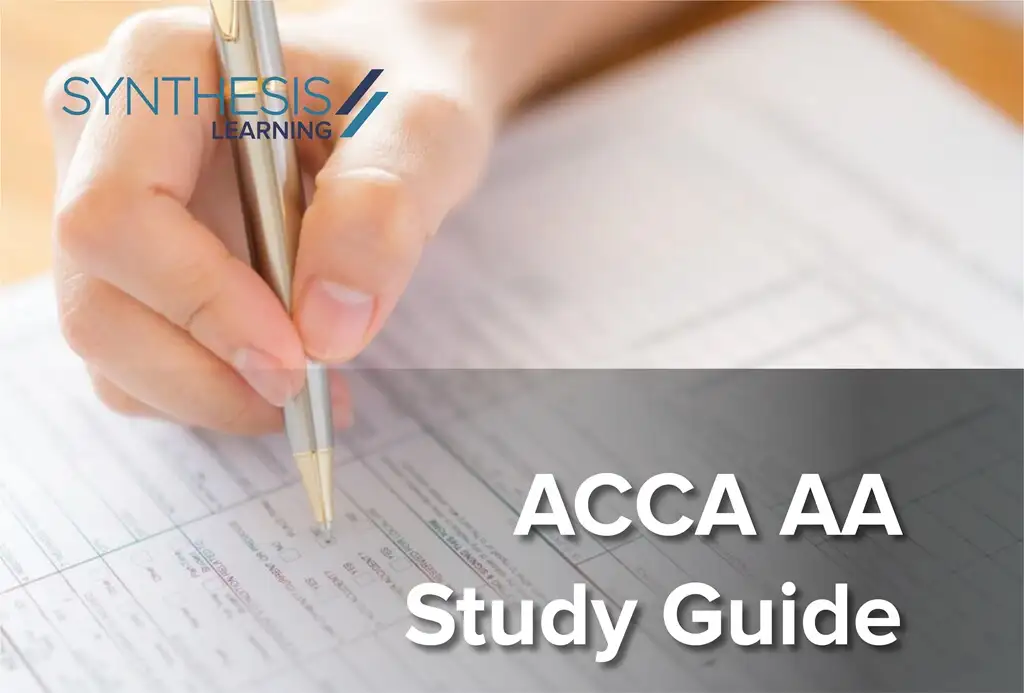
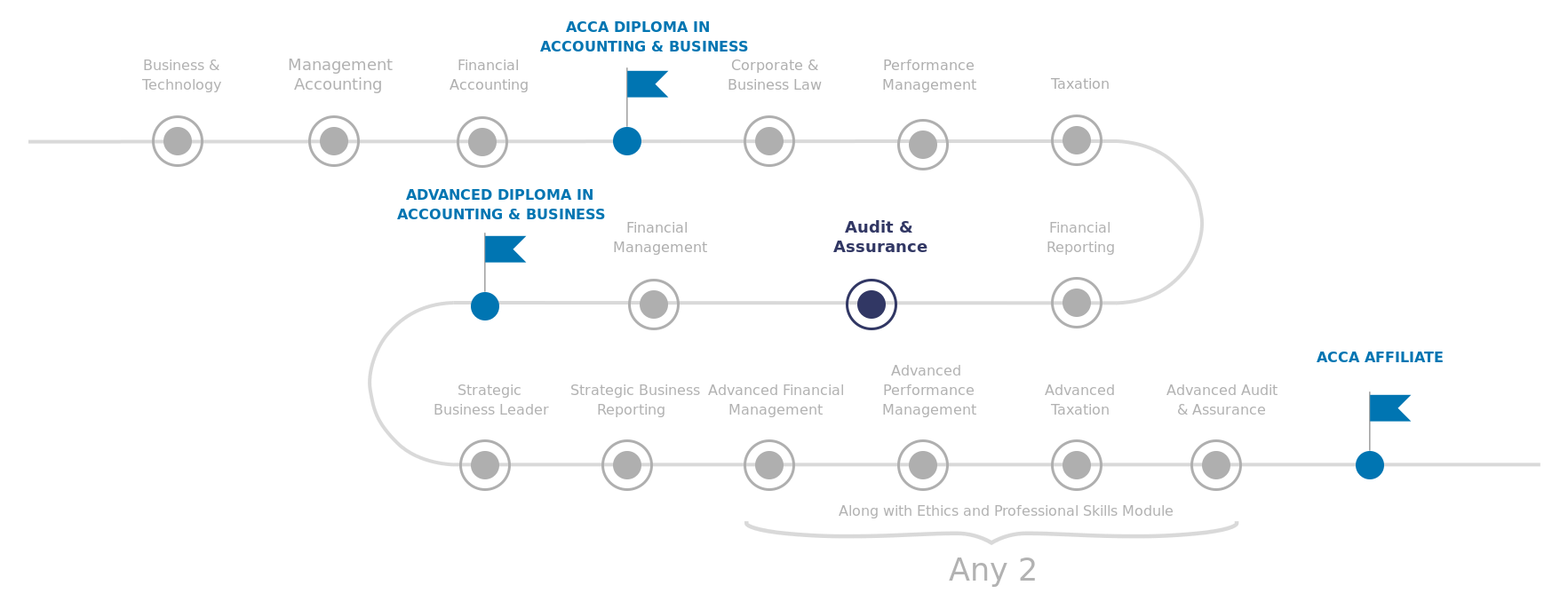
 A. Audit framework and regulation
A. Audit framework and regulation B. Planning and risk assessment
B. Planning and risk assessment C. Internal control
C. Internal control D. Audit evidence
D. Audit evidence E. Review and reporting
E. Review and reporting